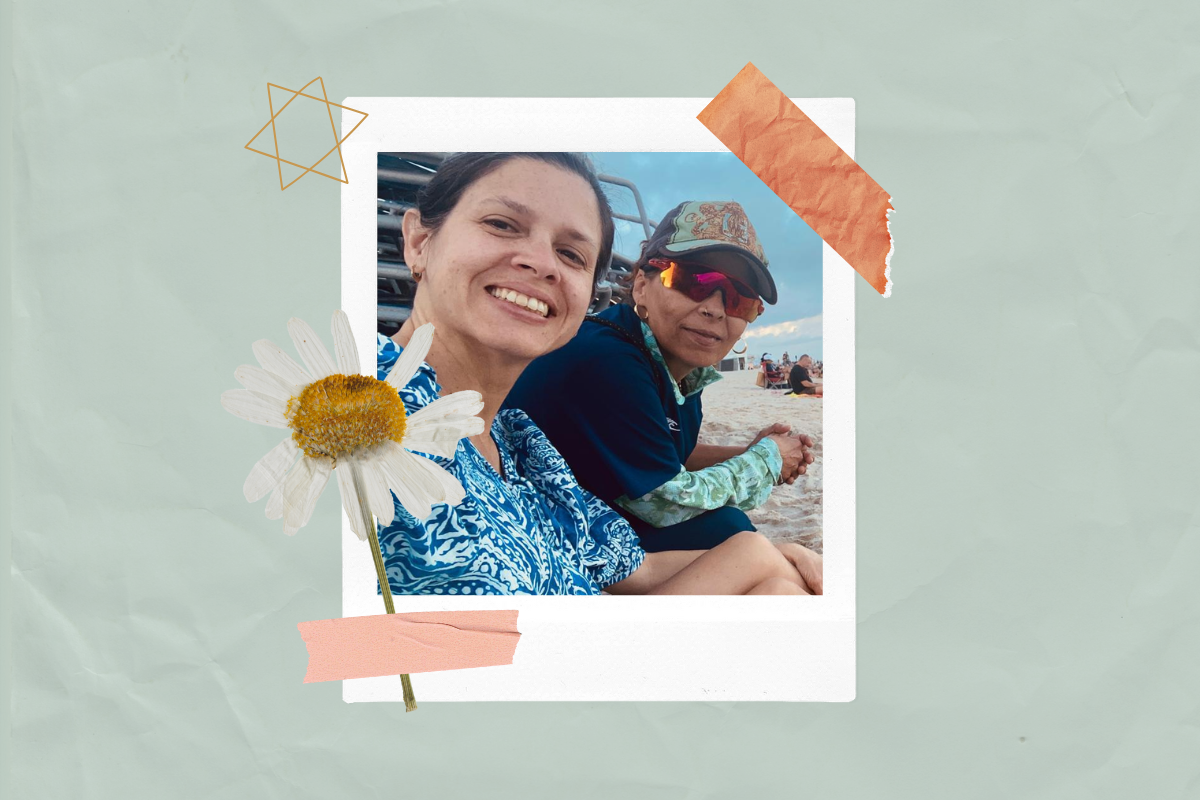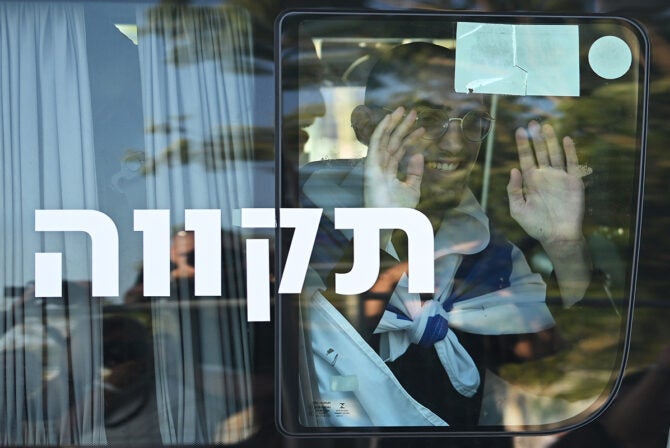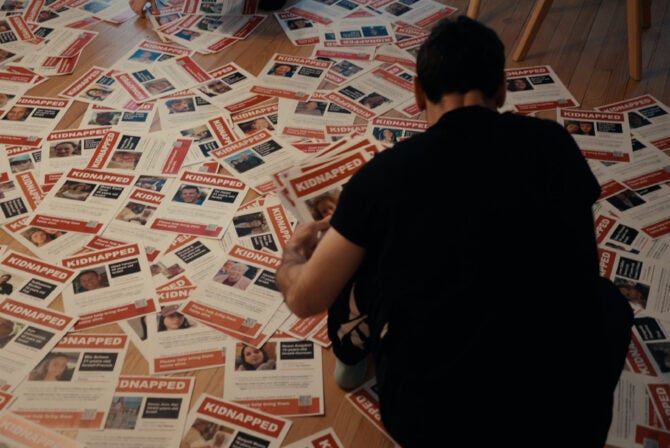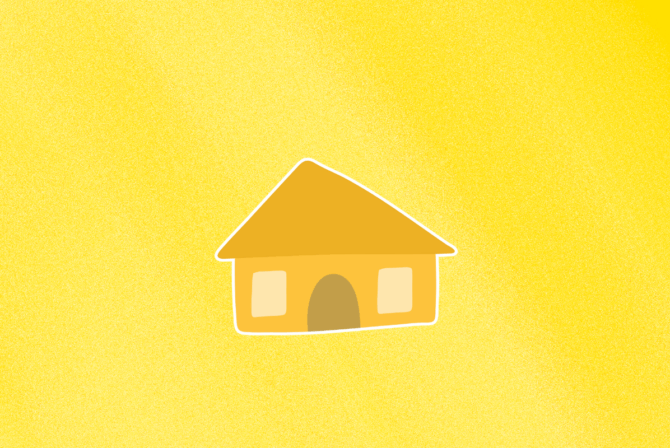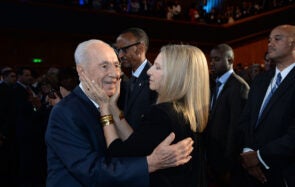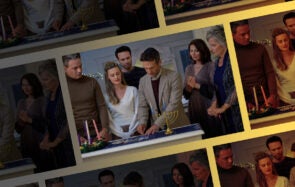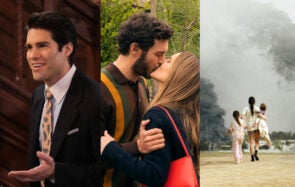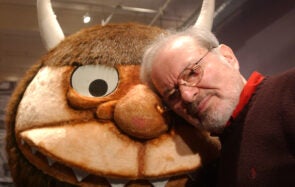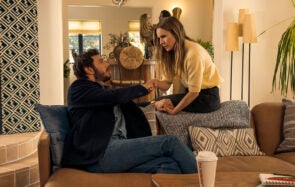To my kids, I am papa.
Now, their teachers call me papa too. But they didn’t at first, and I don’t blame them. I’m part of a two-mom family — or at least, that’s how it looks on the surface. I wear my dark hair in a tight bun, my silver necklaces over my loose-yet-stylish workout clothes. But if you got deeper, if you heard my story, you’d know there’s much more to me.
I grew up as a tomboy in Cuba, in a tight-knit Jewish family. We couldn’t be Jewish out in the world, due to the rules of the communist government, but we were Jewish inside. Everyone — my siblings, my cousin — knew I was a lesbian from an early age. But they didn’t care; they protected me.
In Spanish, we have this concept of cofradía, brotherhood, which encourages us to foster community, despite any differences. Even though I left Cuba for France when I was 18, and France for the United States when I was 45, I have fostered cofradía wherever I’ve gone. In turn, the communities I’ve been a part of have done the same for me.
In France, I lived amongst very strong Jewish communities that helped me understand what a loud and visible Jewish community could look like. I met my wife, who is also Cuban, when I was passing through New York in 2010, and we had our first child in 2020. Now, we have three kids, and we live in a historically Jewish and Latino neighborhood in Manhattan called Washington Heights. My kids go to Jewish school and I am a PJ Library Parent Connector for the area, creating Jewish programming in the many parks in our neighborhood.
I feel proud to be part of an LGBTQ Jewish family because I know how much love we have. People in the LGBTQ community don’t always feel a pull (or have the resources) to be parents, so making the choice to actively add children to our families has to come from a strong intention and desire.
When you grow a family, you grow a shared soul. When we grow Jewish children, we connect really fast, their souls to our soul. And with our spirituality, tradition, religion — however you like to relate to it — we have so many opportunities for our souls to be close to each other. I want other families to have their souls open to my family, the way I have my soul open to theirs.
My Jewish parents wanted me, their child, to have a future. And they wanted me to be me. This is what I took from the Cuban Jewish family I grew up in, and what I give to my Cuban LGBTQ interfaith Jewish family. And it’s something I work to give to every Jewish family I connect with. A sense of belonging, and a promise of a future.
I am so lucky to have the YM&YWHA here in Washington Heights, which has a center for Jewish life with a great rabbi. Even before I was a PJ Library Parent Connector, I was going to Ukelele Shabbat, to all the activities for little kids. We’d go to Shabbat together, to pizza night together. Now I’m the one planning the activities, which brings all different types of Jewish families together for book swaps, clothing drives and play dates. And now that my kids are in school, they’re making new friends, and when their families hear I’m planning activities, they’re all so excited to come spend family time together. They see us — our LGBT, interfaith Jewish family — walking in the streets in the spring and they say, “Are you planning something?”
We feel like we belong. We help other families feel like they belong. And that’s what’s most important.
But here’s what’s also important: How I bring myself to these spaces. We are often told to define gender in the social sphere, but that matters so much less to me than how I define myself in the private and spiritual or mystical life. That is what’s most important — not how I look or am defined on the outside.
I refer to myself as Jewish, as Cubano, as Sephardi. I refer to my family as being LGBTQ. Sometimes I refer to myself as a lesbian, and sometimes as trans. I am not very concerned with how I look or present, or whether I want to get surgery or take hormones, because I know who I am on the inside. I know my masculine soul. That’s what I share with my wife and my kids, who know I am papa.
The future for LGBTQ families is uncertain. I feel strong in my LGBTQ family and in my Jewish community here in Washington Heights. I don’t want to talk about fear, but I do want to talk — to my Jewish community, to my LGBTQ community and to my Jewish LGBT community. There’s enough love for all of us. There’s enough pride for all of us. There’s enough connection for all of our souls.
Come find me in the park, at local street festivals or at a coffee shop. Find me and tell me about who you are on the inside. That’s how I want to connect; that’s the important piece of belonging.
